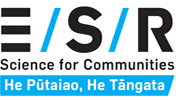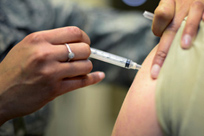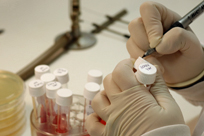Public health
Hauora tūmatanui
About ESR's public health expertise
Infectious diseases are a leading cause of illness in Aotearoa New Zealand. They are particularly dangerous for babies, people with weakened immune systems and the elderly. When we stop or slow down the spread of infectious diseases, we reduce the risk of people becoming unwell and giving infections to others. This helps us protect our communities so we can all live longer, healthier lives.
It also means our hospitals and healthcare facilities are freed up to deal with other health-related issues. ESR scientists are at the forefront of protecting Aotearoa through detecting, reducing and preventing the spread of disease and researching infectious diseases.
Public health laboratories
Infectious diseases are caused by organisms including viruses and bacteria. They have different ways of spreading and can cause a range of health conditions.
Our microbiological public health reference laboratories are accredited as Medical Diagnostic Laboratories (ISO 15189) and Environmental Laboratories (ISO 17025). They operate as part of an international network to detect, identify and classify bacteria and viruses that cause disease.
As the preferred scientific provider for Manatū Hauora (Ministry of Health), ESR provides scientific support to prevent, detect and investigate infectious disease outbreaks, biological threats and emerging threats to public and environmental health.
The ability to coordinate clinical and environmental testing allows us to track the sources of diseases infecting people by analysing animals, food and water in a One Health approach.
We also provide a commercial environmental surveillance service for selected significant organisms.
Find out more about the work we do through the links below or by contacting us.
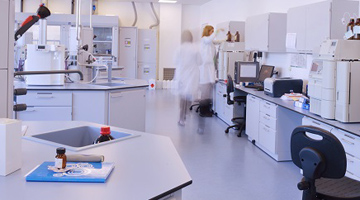
Health testing
ESR experts protect our communities by testing for the presence of bacteria and viruses that cause human disease. These organisms can be spread person-to-person, through contact with animals or within health care facilities.
Read moreLegionella sampling and testing
Legionellosis, also called Legionnaires' disease, is a sometimes fatal lung disease caused by the bacteria Legionella, which live in soil and water sources throughout Aotearoa.
Read more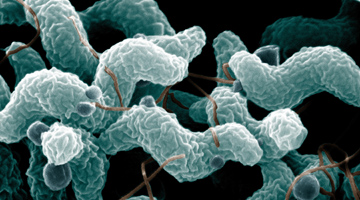
Campylobacter typing
Campylobacteriosis is the most common cause of human bacterial gastroenteritis (food borne illness) in Aotearoa. It’s often the result of eating undercooked meat or something it came in contact with.
Read more
Public health surveillance
ESR’s internationally renowned experts collect and analyse data and intelligence on a wide range of diseases in Aotearoa.
Read more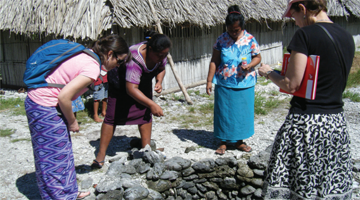
Pacific consultancy
ESR empowers the Pacific region with scientific expertise, information and tools to strengthen policy, programmes and practice to support healthy, safe and resilient communities.
Read more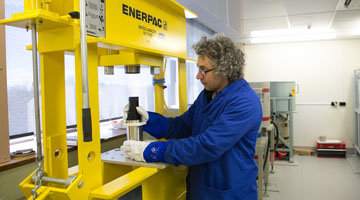
Environmental radioactivity
ESR offers a range of services for determining radioactivity content in a variety of samples such as food, water, soil, sediment, mining ore and products, biota and air samples.
Read more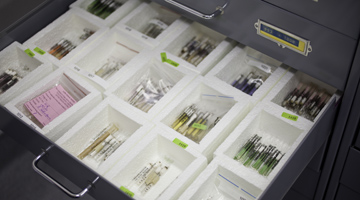
NZRM Culture Collection
ESR maintains a culture collection of medically important bacteria which can be used for research, teaching and quality control. The New Zealand Reference Culture Collection: Medical Section (NZRM) holds over 4,000 bacteria strains and reference cultures.
Read more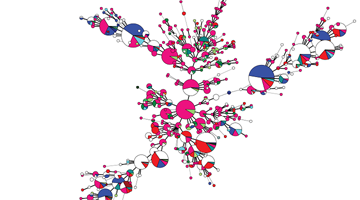
Genomics and next generation sequencing
ESR is exploring DNA and how genes work to help us make smarter choices for our health and the health of our environment.
Read more
Epidemiological skills development programme
ESR’s epidemiological skills development programme provides training and development of personnel to enhance New Zealand’s ability to investigate and respond to infectious disease events.
Read moreHealth intelligence and disease surveillance
ESR’s team of epidemiologists, public health doctors, clinical microbiologists and laboratory scientists provide the government and wider health sector with intelligence on infectious diseases and other serious health threats, such as influenza and antimicrobial resistance.
Read moreEpiSurv and notifiable diseases
If a doctor believes a person has a notifiable disease (required to be reported due to their significant public health risk) they must inform a Medical Officer of Health. EpiSurv is the reporting system and data repository for these diseases.
Read moreESR Clinical Data Repository (CDR) Support
The CDR support team assists users in resolving issues, navigation and optimising the functionalities of systems, including REDCap, EpiSurv, Eclair, the Public Health AIDE and the STI pilot programme.
Read more